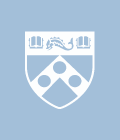Alon Bergman

- Assistant Professor, Department of Medical Ethics & Health Policy, Perelman School of Medicine, University of Pennsylvania
- Assistant Professor of Health Care Management
Contact Information
- Primary Email:
alonberg@wharton.upenn.edu
Activity
Latest Research
Molly Candon, Alon Bergman, Amber Rose, Hummy Song, Guy David, Joanne Spetz (2023), The Relationship Between Scope of Practice Laws for Task Delegation and Nurse Turnover in Home Health, Journal of the American Medical Directors Association, 24 (11), pp. 1773-1778. 10.1016/j.jamda.2023.07.023
All ResearchIn the News
Measuring Inequality in Patient Access to Hospital ProceduresWharton’s Alon Bergman and Guy David have developed a metric that policymakers can use to help reduce inequality in health care.…Read More
Knowledge at Wharton - 5/13/2025

